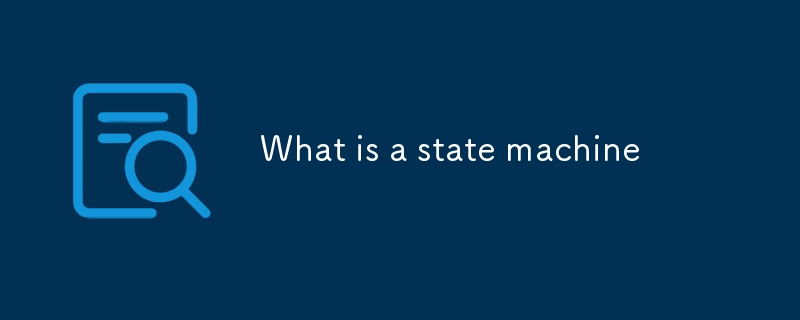What is a state machine
A state machine defines a system's behavior via finite states and transitions. Its components include states, representing system configurations; transitions, governed by events triggering state changes; inputs, triggering transitions; and outputs, p

What are the key components of a state machine?
A state machine is a finite state machine, or FSM, which is a mathematical model that can be used to describe the behavior of a system as it progresses through different states. The key components of a state machine are:
- States: The states of a state machine are the distinct configurations that it can be in. Each state represents a different set of conditions or circumstances.
- Transitions: The transitions of a state machine are the rules that govern how the state machine moves from one state to another. Transitions are typically triggered by events or conditions.
- Inputs: The inputs of a state machine are the external events or conditions that can trigger transitions.
- Outputs: The outputs of a state machine are the actions or events that are performed when the state machine transitions from one state to another.
How do state machines differ from other types of automata?
State machines are a type of automata, which is a general term for mathematical models that can be used to describe the behavior of systems. There are many different types of automata, but state machines are unique in that they have a finite number of states and transitions. This makes state machines relatively simple to design and implement, which is why they are often used in system design.
What are the advantages and disadvantages of using state machines in system design?
State machines offer several advantages in system design, including:
- Simplicity: State machines are relatively simple to design and implement, which makes them a good choice for systems that need to be easy to understand and maintain.
- Flexibility: State machines can be easily modified to accommodate changes in the system's requirements.
- Reliability: State machines are typically very reliable, as they are deterministic and do not rely on any external factors.
However, state machines also have some disadvantages, including:
- Scalability: State machines can become complex and unwieldy as the number of states and transitions increases.
- Efficiency: State machines can be inefficient, as they may need to perform a large number of transitions to reach a desired state.
- Concurrency: State machines are not well-suited for modeling concurrent systems, as they can only handle one event at a time.
The above is the detailed content of What is a state machine. For more information, please follow other related articles on the PHP Chinese website!

Hot AI Tools

Undresser.AI Undress
AI-powered app for creating realistic nude photos

AI Clothes Remover
Online AI tool for removing clothes from photos.

Undress AI Tool
Undress images for free

Clothoff.io
AI clothes remover



